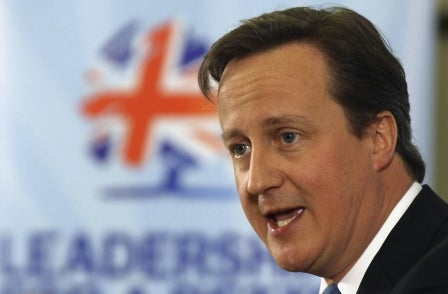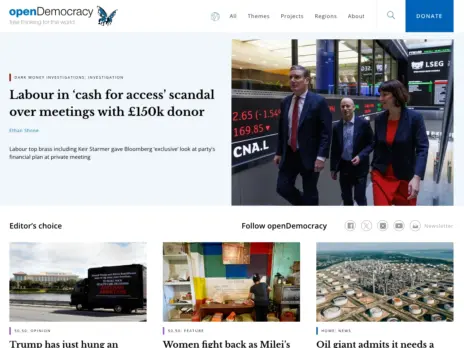
National press editorials lined up today in support of David Cameron and against any statutory backing for press regulation.
The Prime Minister stunned Labour leader Ed Miliband and Deputy Prime Minister Nick Clegg yesterday by ending cross-party talks on regulation following last year’s report. The shock move has prompted a Commons vote on the issue on Monday, with Cameron proposing a Royal Charter in place of new legislation.
Labour and the Liberal Democrats are drafting independent responses to Cameron’s proposals, with both expected to emerge later today.
The Times said Cameron had “advanced a practical scheme” adding that those for legislation – including Miliband, Clegg and campaign group Hacked Off – were acting for "short-term political advantage" and "not in the interests of independent regulation, a free press or the people of Britain".
In its leader, the paper added: "To answer to Parliament is an unwise and unnecessary intrusion into the freedom of the press that has been hard won over hundreds of years."
The Daily Mail said Labour “has been hijacked by Hacked Off” and labelled the group “a self-appointed cadre of press-hating zealots, tarnished celebrities and small-town academics”.
It backed the Prime Minister’s “principled stand”, adding: “He is resolutely opposed to direct state regulation of the press, but realises rightly that the public has lost confidence in the existing system of self-regulation following the News of the World phone hacking scandal.
“He wants a Royal Charter to back up a tough new system of independent regulation that has the powers to investigate malpractice in the press, impose huge fines and resolve grievances.
“The Press is by no means happy with all these proposals, which Mr Cameron rightly described as amounting to the toughest system of regulation in the Western world. But editors and proprietors, accepting that compromise must be reached, have made considerable concessions.”
The Daily Express also praised Cameron and called on MPs to vote against statute-backed regulation.
"Our politicians must now show just how wedded to the principles of a free society they really are," it said.
The Daily Telegraph said the Prime Minister’s Royal Charter was "the best option" but warned that "the press would be less free" following Monday’s vote irrespective of the outcome.
"One of the fundamental characteristics of a free country will have been diminished," continued The Telegraph in its leader column. "It promises to be a shameful day for Parliament, the supposed custodian of our liberties. Despots around the world will be delighted."
It said Miliband and other campaigners had used hacking victims such as the families of Milly Dowler and Madeleine McCann “in just as cynical a fashion as those newspapers they criticise so volubly".
“The Labour leader appears to want a more docile, less inquisitive press – but it would also be one less inclined to delve too deeply into the affairs of parties or politicians.”
However, The Sun’s Trevor Kavanagh said the choice between statutory underpinning and a Royal Charer was “a choice between the Devil and the Deep Blue Sea”.
Instead, the paper’s former political editor proposed “a third way”. He said Leveson’s recommendations could be implemented through “a powerful, responsive and accountable body to regulate the industry free from political influence”.
He added: “Without a free press, we will suffer ever more suffocating bureaucracy and more undiscovered corruption in our public life.”
Earlier this week The Guardian, Independent and Financial Times clubbed together in support of statutory-backed regulation, putting themselves at odds with the majority of national titles.
In its leader column on Tuesday, The Guardian said: “A clause underpinning a Royal Charter to establish a Recognition Panel does not, in our minds, amount to statutory control of the press. We do not see it as a threat to press freedom.”
Email pged@pressgazette.co.uk to point out mistakes, provide story tips or send in a letter for publication on our "Letters Page" blog






